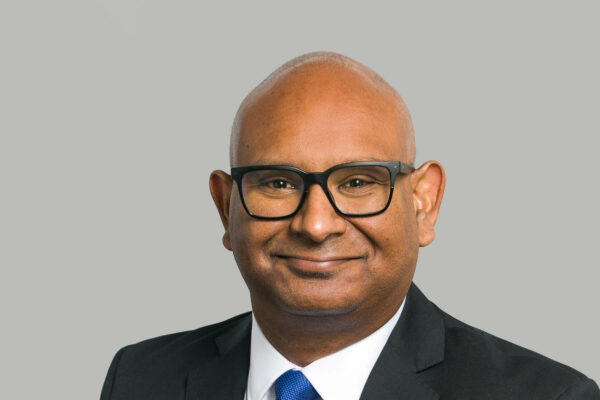How has third-party funding impacted enforcement strategies?

This article was published in conjunction with Grant Thornton and Leste Litigation Finance.
In this article, we focus on the impact of third party funding (TPF) on quantum experts and on enforcement strategies, both from an English and Brazilian perspective. We have brought together English and Brazilian practitioners to share insights and experience. Our panel includes a Brazilian barrister, a Brazilian funder and a forensic accountant.
After discussing the impact of TPF on the involvement of quantum experts in the first part of this article, we will focus our discussions on enforcement strategies.
Sandy Cowan
TPF encourages the early assessment of recoverability, as before deciding on whether to finance a claim the third party funder (Funder) needs to get some comfort on the willingness and ability of the losing party to pay any damages and costs and of the ability of the claimants to enforce an award if required. This assessment is usually carried out as part of the due diligence process. Funders seek confirmation of the other party’s creditworthiness, of the existence of their main assets and their location in an enforcement-friendly jurisdiction.
It is important to have a pro-active strategy to maximise recoveries.
Apart from immediate considerations of funding, it is important for the funded party that a strategy is in place to ensure enforcement and to recover assets to satisfy the potential arbitration award. In particular, steps can be taken early to preserve assets in contemplation of arbitration. There are a number of routes available to a claimant to pursue effective recovery of assets, which also provide a few interim measures.
- For example, acting as provisional liquidators, interim receivers or court appointed receivers enables assets to be protected whilst proceedings are on going. These appointments can be recognised globally and in numerous offshore jurisdictions meaning that assets which are held offshore in places such as the BVI, Cyprus, etc. can be recovered for the claimant.
- The appointment of an emergency arbitrator should also be considered if there are any doubts about the dissipation of assets.
- In some jurisdictions (eg under section 44 of the English Arbitration Act), a party can apply to the court for orders to preserve evidence of assets (freezing orders). This should be done on an ex parte basis to prevent the defendant from delaying the enforcement.
If arbitration funding is being sought, then enforcement funding should also be considered at the same time. In our experience, it is much more practical to bundle funding for enforcement or further investigation up front than trying to obtain separately at a later date.1
Marcela Kohlbach
According to Samala and Pugliese2 , arbitration may not only reduce the transaction costs related to the matter itself, but also favours the establishment of a system for incentivising the compliance of contracts. Indeed, arbitration has all the elements that a market needs to ensure enforceability of awards, therefore, reducing a matter’s transaction costs and encouraging parties to incorporate the costs of a future dispute in their contracting behaviour. Two elements are the quality of arbitral awards and the reduced selected size of the arbitration market, thereby constraining unsuccessful defendants to pay the bill at the end of the day.
However, the recent economic crisis that has stricken Brazil is changing this positive scenario, resulting into more enforcements based on arbitral awards, as well as a growth in the number of procedures advancing to the annulment of awards. Thus, the Funder must consider enforcement strategies. The first step to be considered is any previous due diligence to verify the financial situation of the counterparty. This step consists of finding the counterparty’s assets and analysing the ability of the counterparty to provide the payment of the amount established in the arbitral award. For that, it is also important for the Funder to have a reliable estimate of the amount at stake.
The second step is the procedural strategy to be adopted. In Brazil, after the arbitral award is rendered, the Funder can pursue the awarded amount itself, or together with the funded party. In the second scenario, the costs of enforcement can be shared between the Funder and the funded party, or can be fully supported by the Funder. All options mentioned are valid and depend exclusively on the agreement made between the Funder and the funded party.
Whether an international award needs to be recognised in a different jurisdiction from where the assets are located, or even if there is a need to start legal proceedings for executing the award in a different jurisdiction, having a Funder on the party’s side can change the scenario. Examples of the many reasons for the impact caused by the participation of a Funder are (i) greater access to information; (ii) greater availability of resources; and (iii) more experience and expertise on finding assets (since most of the Funders are normally involved in financial institutions) – which can be especially true in prodebtor jurisdictions, such as Brazil.
Frederico Singarajah
In the context of TPF, to me enforcement must be divided into two categories (a) judgment or award (ie damages) and (b) costs.
In respect of the former, the Funder and funded party must examine what assets the defendant has and where they are located. Many of the large Funders will only invest in larger claims, which will normally involve an international element. Most dispute resolution professionals will be familiar with the more arbitration or judgment friendly jurisdictions in Europe, Australia, Hong Kong, Singapore or the US. However, what if you are dealing with enforcement in Angola, China, Qatar or another more exotic jurisdiction?
Looking not only at the practical aspects that have been discussed by my colleagues above but also, legal aspects, I would advise considering: are the countries where the assets are located signatories to the New York Convention? What interim measures are available there? Do they have local laws restricting enforcement? Will they enforce if the award is set aside in the seat? These matters must be properly considered by parties and Funders. However, in my opinion, competent lawyers would have always alerted their clients to these matters prior to initiating a claim. I recall as early as law school being told that the first thing a litigator must turn his mind to is the question: is the defendant a man of straw? Where quantum experts may be helpful is in determining and assessing the whole portfolio of assets so the risk of not recovering the entire sum awarded, can be established.
Turning to the second issue, this is where I see the impact of TPF changing the landscape. There are two issues that come to mind.
First, the enforcement of retrospective adverse costs orders against Funders. We see in England and Wales that Funders, in the courts at least, may be liable for the costs of the other side, up to the value that they have agreed to fund their own client3 . For Brazilian Funders, I would say they are probably safe for now, if they stick to funding arbitrations only. However, we have all been surprised in the past. After we saw the QMUL-ICCA Task Force on TPF Draft Report, opining that arbitrators did not have the jurisdiction to award the premium of TPF, we saw the Essar case do precisely that. So although I accept it is unlikely that arbitration will follow the litigation route, I cannot rule it out.
Secondly, enforcement of costs orders prospectively. We can see from recent measures in Hong Kong and Singapore that the disclosure of TPF is becoming more common. In Brazil, CAMCCBC the largest international arbitration chamber, included a resolution that “to avoid potential conflicts of interest” parties “report the existence of third party funding to CAM-CCBC at the earliest opportunity. The complete qualification of the funder should be included in this communication.” These provisions open the door to arbitrators ordering security for costs, in appropriate circumstances. This type of order effective provides for preemptive enforcement of costs orders against Funders. After all, if the party has sought TPF, it follows that they will be looking to them for the payment of any order for security.
In both costs issues, working with quantum experts accurately and realistically determining the claim to costs proportions is something that must be encouraged. A good legal team will be able to advise appropriately as to the risk of early payments or payments outside the scope of any agreement.
Answering the question, yes TPF has impacted enforcement strategies. Not all of it is good for the Funders.
The third and last part of this article will discuss how, if at all, TPF has or could affect the independence of quantum experts.
1The author would like to thank Marion Lespiau for her assistance in drafting this article.
2 PUGLIESE, Antonio Celso Fonseca; SALAMA, Bruo Meyerhof. A Economia da Arbitragem: Escolha Racional e Geração de Valor. Revista Direito GV. Jan-jun. 2008. São Paulo. P. 15-27.
Disclaimer
This content is provided free of charge for information purposes only. It does not constitute legal advice and should not be relied on as such. No responsibility for the accuracy and/or correctness of the information and commentary set out in the article, or for any consequences of relying on it, is assumed or accepted by any member of Chambers or by Chambers as a whole.
Contact
Please note that we do not give legal advice on individual cases which may relate to this content other than by way of formal instruction of a member of Gatehouse Chambers. However, if you have any other queries about this content please contact:


